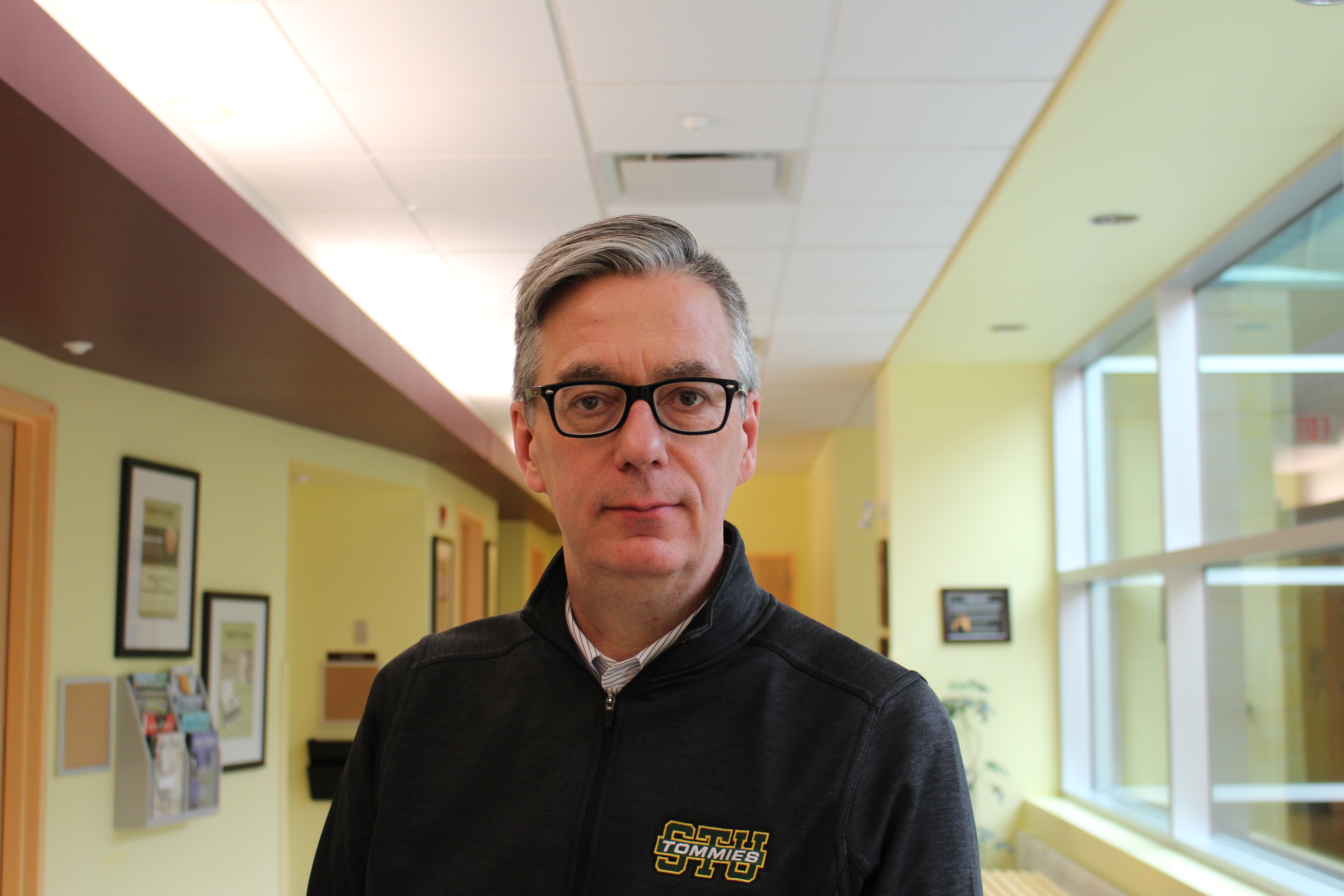Jeffrey Carleton, associate vice-president communications for St. Thomas University, said he gets the sense it will take a day for the news to sink in that STU is suspending in-person classes for the rest of the academic year.
“In circumstances where there’s uncertainties, [students] want to control what you can control. And that’s why we made the decision that we made today,” he said.
STU wanted to give international and domestic students the power to make their own decisions on if they would return home in the wake of the COVID-19 pandemic. The decision was made due to the ongoing COVID-19 situation. As of March 12, there are 104 confirmed cases in Canada and 119,744 cases globally.
Yesterday, Jennifer Russell, New Brunswick’s chief medical officer of health, confirmed the first case of coronavirus in New Brunswick. She also said that in order to prevent the virus from spreading people should not get closer than two feet to each other and non-essential events of over 150 people should be cancelled.
In an email sent from STU President Dawn Russell on March 13 to students and staff, Russell wrote, “This is a decision taken with the best interests of our community in mind and in light of both the public health situation and growing anxiety.”
Dawn Russell said in the email they have taken direction from the chief medical officer of health and the Fredericton Public Health website and consulted with the university leadership, the Faculty Association, St. Thomas University Support and Administration Union and the St. Thomas University Students’ Union.
The University of New Brunswick has also decided to cancel in-person classes starting tomorrow morning at 8 a.m. They will be suspended for the rest of the semester.
Carleton said STU wanted to make some time for travel so international and domestic students could decide whether to go home or not, which is why they’ve cancelled classes on Monday, Tuesday and Wednesday next week.
Online classes will resume Thursday.

“Most of the concern was coming from international students and concern that they would be hampered in their ability to return home.”
Carleton said the decision for students on if they will return home is up to them.
“We’ve created the opportunity for them to return home. The decision will be theirs. Our decision to go down this path was certainly influenced by uncertainty in greater society over international travel, and also anxiety that our students and their parents were communicating to us.”
He said they also needed time for faculty to look at their syllabus to see how they could structure it to move teaching online.
All buildings and facilities will remain open at STU, which includes the residences and Aramark food services.
The decision has also been made to cancel “discretionary campus events.”
The T-Ceremony and the Grad Dinner have been postponed and the decision to reschedule will be assessed at a later date.
Online classes
Carleton said they reached out to STU’s IT Services to start assembling “a package of tools” for professors to use for moving to online courses. He said they can use Moodle to distribute materials and collect submissions and Office 365 for online meetings either in groups or one-on-one. He said a certain tool on Microsoft Teams, Stream, can be used to record “online meetings” and make online classes that can be available to students.
Carleton said IT is reaching out to faculty to develop a method for distributing their materials and collecting materials from students, and to provide them with any training or support faculty will need to adapt to these tools.
“That’s why it was important for us to have those three days, Monday, Tuesday, Wednesday next week, for the opportunity for faculty who do need assistance to look at their syllabus, see how they want to move what parts online and then for IT to provide the service to them.”
Other services
On Monday, Aramark is moving meal hall to a service model. They will serve food to the students, rather than go by the current buffet style, in an attempt to minimize any potential risk.
Carleton said Aramark staff have also received training on special approaches to cleaning. They’ve assigned more staff to cleaning duties around campus and are using special disinfectant.
“Aramark and facilities have really upped their game with regards to precautionary cleaning of surfaces around campus. They call them high touch surfaces: doorknobs, stairwell, railings, elevator buttons, things like that.”
International exchanges, other decisions
Students who were supposed to leave this spring for an exchange in Japan are no longer going, said Carleton. There are also approximately nine students currently on international exchange. He said they’ve been in direct contact with them for “well over a week” and their decisions are based on what their host university is doing.
He said three students have decided to return home from Spain and will go to their home in whatever state, province or country they’re from.
Carleton said there is still work to be done. He said they will reach out to the Experiential Learning Office to see what impact this decision is going to have on individual students in work placements.
Carleton said the COVID-19 situation is still evolving. He suggested students get their information from trusted sources like the chief medical officer and the Fredericton Public Health website.
To protect yourself, the New Brunswick government recommends avoiding contact with any sick person, coughing in tissues or your elbow, avoid touching your face, and washing your hands often. The most common symptoms of coronavirus include a fever, cough and difficulty breathing. The government recommends you call 811 if you are feeling sick.
With files from Caitlin Dutt

